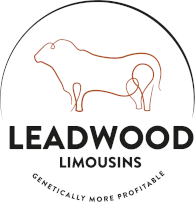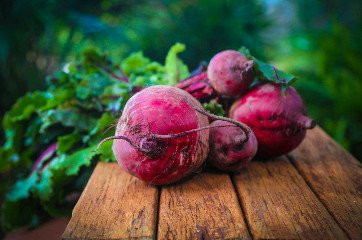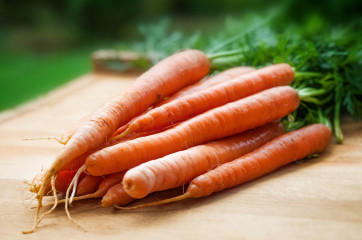If you are excited about health and nutrition like we are, delve into these information-packed research papers for more information on all the health benefits of carrots and beetroot.
Our Products
Healthy. Nutritious. Sustainable.
We are proud to produce a range of safe, healthy, and nutritious products of consistent quality.
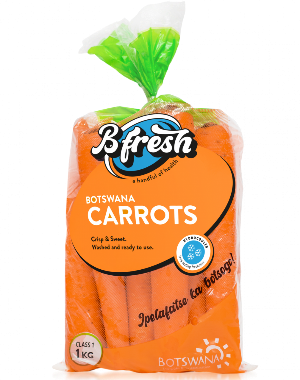 |
B-Fresh Carrots |
||
| 1kg B-Fresh Carrots | Washed, Brush-polished, Hydro-cooled | 10 x 1kg units per bag 100 bags per pallet |
|
| 5kg B-Fresh Carrots | Value Pack - 1st grade broken carrots Washed, Brush-polished Hydro-cooled |
200 bags per pallet | |
| 10kg B-Fresh Carrots | 10kg Washed, Brush-polished Hydro-cooled |
100 bags per pallet |
|
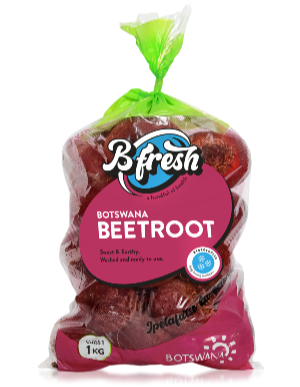 |
B-Fresh Beetroot |
||
| 1kg B-Fresh Beetroot | Washed, Brush-polished, Hydro-cooled | 10 x 1kg units per bag 100 bags per pallet |
|
| 5kg B-Fresh Beetroot | Washed, Brush-polished, Hydro-cooled | 200 bags per pallet | |
| 10kg B-Fresh Beetroot | Washed, Brush-polished, Hydro-cooled |
100 bags per pallet |
|
Health
Healthy beetroot
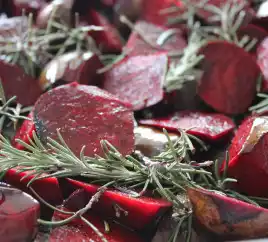
Beetroot, commonly known as beets, is a vibrant and versatile vegetable. They’re known for their earthy flavour and can be enjoyed raw, baked, cooked or juiced. Their leaves — known as beet greens — can also be eaten.
In addition to bringing a splash of colour to your plate, beetroots are highly nutritious and packed with essential vitamins and minerals that have medicinal properties.
Beetroot contains important pigments called betalains that have various anti-inflammatory properties.
- Improvement of hypertension, endothelial function and systemic inflammation following short-term supplementation with red beet (Beta vulgaris L.) juice: a randomized crossover pilot study, Journal of human hypertension, US National Library of Medicine, National Institutes of Health.https://www.ncbi.nlm.nih.gov/pubmed/27278926
- Beetroot (Beta vulgaris L.) extract ameliorates gentamicin-induced nephrotoxicity associated oxidative stress, inflammation, and apoptosis in rodent model, Mediators of inflammation, US National Library of Medicine, National Institutes of Health. https://www.ncbi.nlm.nih.gov/pubmed/25400335
Beetroots are rich in folate which helps cells grow and function. Maintaining a healthy level of folate intake during pregnancy can reduce the risk of birth defects in the baby.
- Dietary interventions for fetal growth restriction – therapeutic potential of dietary nitrate supplementation in pregnancy, The Journal of Physiology, US National Library of Medicine, National Institutes of Health.https://www.ncbi.nlm.nih.gov/pubmed/28090634
- Folic acid and neural tube defects, Genetics in Medicine, Nature Journals. https://www.nature.com/articles/gim200554
Beetroot contains nitrates that boost our body's levels of nitric oxide. Nitric oxide tells our blood vessels to expand, increasing blood flow and lowering blood pressure.
- Dietary nitrate provides sustained blood pressure lowering in hypertensive patients: a randomized, phase 2, double-blind, placebo-controlled study, Hypertension, US National Library of Medicine, National Institutes of Health. https://www.ncbi.nlm.nih.gov/pmc/articles/PMC4288952/
Beetroot can improve the amount of oxygen that muscles absorb during exercise which means we can perform at a certain level for longer. If our potassium levels are too low, fatigue, weakness, and muscle cramps can occur. Beetroot is a good source of potassium.
- Beetroot Juice Boosts Stamina, New Study Shows, ScienceDaily. https://www.sciencedaily.com/releases/2009/08/090806141520.htm
- Whole beetroot consumption acutely improves running performance, Journal of the Academy of Nutrition and Dietetics, US National Library of Medicine, National Institutes of Health. https://www.ncbi.nlm.nih.gov/pubmed/22709704
- Beetroot Juice Improves On-Water 500 M Time-Trial Performance, and Laboratory-Based Paddling Economy in National and International-Level Kayak Athletes, International journal of sport nutrition and exercise metabolism, US National Library of Medicine, National Institutes of Health. https://www.ncbi.nlm.nih.gov/pubmed/25202886
- Combined Dietary Nitrate and Exercise Intervention in Peripheral Artery Disease: Protocol Rationale and Design, JMIR Research Protocols, US National Library of Medicine, National Institutes of Health. https://www.ncbi.nlm.nih.gov/pmc/articles/PMC5645641/
- Evaluation of pectin binding of heavy metal ions in aqueous solutions, Chemosphere, US National Library of Medicine, National Institutes of Health. https://www.ncbi.nlm.nih.gov/pubmed/10204240
- Liver-protecting effects of table beet (Beta vulgaris var. rubra) during ischemia-reperfusion, Nutrition, US National Library of Medicine, National Institutes of Health. https://www.ncbi.nlm.nih.gov/pubmed/17234508
- Beetroot juice protects against N-nitrosodiethylamine-induced liver injury in rats, Food and Chemical Toxicology, US National Library of Medicine, National Institutes of Health.https://www.ncbi.nlm.nih.gov/pubmed/22465004
- Beet Root Juice: An Ergogenic Aid for Exercise and the Aging Brain, The journals of gerontology, US National Library of Medicine, National Institutes of Health. https://www.ncbi.nlm.nih.gov/pmc/articles/PMC5861951/
- Acute effect of a high nitrate diet on brain perfusion in older adults, Nitric Oxide, US National Library of Medicine, National Institutes of Health. https://www.ncbi.nlm.nih.gov/pmc/articles/PMC3018552/
- Vegetable compound could have a key role in ‘beeting’ Alzheimer’s disease, ScienceDaily. https://www.sciencedaily.com/releases/2018/03/180320084414.htm
- Daily dose of beet juice promotes brain health in older adults, ScienceDaily. https://www.sciencedaily.com/releases/2010/11/101102130957.htm
- Dietary nitrate modulates cerebral blood flow parameters and cognitive performance in humans: A double-blind, placebo-controlled, crossover investigation, Physiology & Behavior, US National Library of Medicine, National Institutes of Health.https://www.ncbi.nlm.nih.gov/pubmed/26037632
- Chemoprevention of lung and skin cancer by Beta vulgaris (beet) root extract, Cancer letters, US National Library of Medicine, National Institutes of Health. https://www.ncbi.nlm.nih.gov/pubmed/8620443
- What is vitamin A and why do we need it?, Community Eye Health Journal, US National Library of Medicine, National Institutes of Health. https://www.ncbi.nlm.nih.gov/pmc/articles/PMC3936685/
- The Roles of Vitamin C in Skin Health, Nutrients, US National Library of Medicine, National Institutes of Health. https://www.ncbi.nlm.nih.gov/pmc/articles/PMC5579659/
- One Week of Daily Dosing With Beetroot Juice Improves Submaximal Endurance and Blood Pressure in Older Patients With Heart Failure and Preserved Ejection Fraction, JACC, Heart Failure, US National Library of Medicine, National Institutes of Health.https://www.ncbi.nlm.nih.gov/pubmed/26874390
- Beetroot juice reduces infarct size and improves cardiac function following ischemia–reperfusion injury: Possible involvement of endogenous H2S, Experimental Biology and Medicine, US National Library of Medicine, National Institutes of Health. https://www.ncbi.nlm.nih.gov/pmc/articles/PMC4935262/
- Effects of nitrate supplementation via beetroot juice on contracting rat skeletal muscle microvascular oxygen pressure dynamics, Respiratory physiology & neurobiology, US National Library of Medicine, National Institutes of Health. https://www.ncbi.nlm.nih.gov/pmc/articles/PMC3753182/
- Cytotoxic effect of the red beetroot (Beta vulgaris L.) extract compared to doxorubicin (Adriamycin) in the human prostate (PC-3) and breast (MCF-7) cancer cell lines, Anti-cancer agents in medicinal chemistry, US National Library of Medicine, National Institutes of Health. https://www.ncbi.nlm.nih.gov/pubmed/21434853
- Chemoprevention of lung and skin cancer by Beta vulgaris (beet) root extract, Cancer letters, US National Library of Medicine, National Institutes of Health. https://www.ncbi.nlm.nih.gov/pubmed/8620443
- Beetroot-Carrot Juice Intake either Alone or in Combination with Antileukemic Drug ‘Chlorambucil’ As A Potential Treatment for Chronic Lymphocytic Leukemia, Open access Macedonian journal of medical sciences, US National Library of Medicine, National Institutes of Health. https://www.ncbi.nlm.nih.gov/pmc/articles/PMC4877878/
- Betanin-Enriched Red Beetroot (Beta vulgaris L.) Extract Induces Apoptosis and Autophagic Cell Death in MCF-7 Cells, Phytotherapy Research, US National Library of Medicine, National Institutes of Health.https://www.ncbi.nlm.nih.gov/pubmed/26463240
*Important notice: This information is not intended to be a substitute for professional medical advice, diagnosis, or treatment. Always consult with your physician or a qualified healthcare provider if you have any medical condition.
Healthy carrots
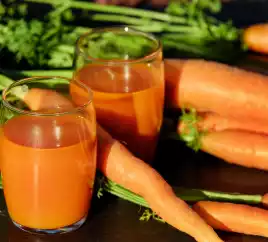
Carrots have a lot of bang for their buck and are nutritionally dense. They are crisp, sweet, tasty and have great texture.
Enjoy carrots fresh in a salad, raw with dips or pack them for a school lunchbox. Juiced, baked, boiled, steamed, or grated into a carrot cake will give you all the antioxidants, fibre, beta carotene, vitamins and minerals they are famous for.
Improve your eyesight
Vitamin A is essential for good vision, and carrots offer the nutrient in abundance.
• Lindeboom, G. A. “Historical milestones in the treatment of night blindness.” Clio medica (Amsterdam, Netherlands) 19.1-2 (1984): 40-49. https://www.ncbi.nlm.nih.gov/pubmed/6085992
• Rasmussen, Helen M., and Elizabeth J. Johnson. “Nutrients for the aging eye.” Clinical interventions in aging 8 (2013): 741.https://www.ncbi.nlm.nih.gov/pmc/articles/PMC3693724/
Boost your immune system
Carrots provide the antioxidant vitamin C which is essential for wound healing and
keeping the body healthy.
• Huang, Zhiyi, et al. “Role of vitamin A in the immune system.” Journal of clinical medicine 7.9 (2018): 258.https://www.ncbi.nlm.nih.gov/pmc/articles/PMC6162863/
• Ang, Abel, et al. “Vitamin C and immune cell function in inflammation and cancer.” Biochemical Society Transactions 46.5 (2018): 1147-1159. https://www.ncbi.nlm.nih.gov/pmc/articles/PMC6195639/
Regulate your blood pressure
The fibre and potassium in carrots may help manage blood pressure. Potassium helps relax the blood vessels, reducing the risk of high blood pressure and other
cardiovascular issues.
• Potter, Andrew S., et al. “Drinking carrot juice increases total antioxidant status and decreases lipid peroxidation in adults.” Nutrition journal 10.1 (2011): 96.
https://www.ncbi.nlm.nih.gov/pmc/articles/PMC3192732/
Promote good bone health
Carrots contain vitamin K and small amounts of calcium and phosphorus. All of these contribute to bone health and may help prevent osteoporosis.
• Tanumihardjo, Sherry A. “Vitamin A and bone health: the balancing act.” Journal of Clinical Densitometry 16.4 (2013): 414-419. https://www.ncbi.nlm.nih.gov/pubmed/24183637
Skin Health
• Darvin, Maxim E., et al. “The role of carotenoids in human skin.” Molecules 16.12 (2011): 10491-10506. https://www.ncbi.nlm.nih.gov/pmc/articles/PMC6264659/
• Lascari, André D. “Carotenemia: A review.” Clinical pediatrics 20.1 (1981): 25-29. https://www.ncbi.nlm.nih.gov/pubmed/7449242
Liver Health
• Sacco, Rodolfo, Roberto Eggenhoffner, and Luca Giacomelli. “Glutathione in the treatment of liver diseases: insights from clinical practice.” Minerva gastroenterologica e dietologica 62.4 (2016): 316-324.https://www.ncbi.nlm.nih.gov/pubmed/27603810
• Guan, Yong-Song, and Qing He. “Plants consumption and liver health.” Evidence-Based Complementary and Alternative Medicine 2015 (2015).https://www.ncbi.nlm.nih.gov/pmc/articles/PMC4499388/
Reduce the risk of developing cancer
Carrots contain luteolin, a flavonoid phytochemical that exhibits antioxidant, anti-inflammatory, and anti-cancer effects.
• Ahmad, Tanveer, et al. “Phytochemicals in Daucus carota and Their Health Benefits.” Foods 8.9 (2019): 424.https://www.ncbi.nlm.nih.gov/pmc/articles/PMC6770766/
• Zaini, Rana, Malcolm R. Clench, and Christine L. Le Maitre. “Bioactive chemicals from carrot (Daucus carota) juice extracts for the treatment of leukemia.” Journal of medicinal food 14.11 (2011): 1303-1312.https://www.ncbi.nlm.nih.gov/pubmed/21864090
• Larsson, Susanna C., et al. “Vitamin A, retinol, and carotenoids and the risk of gastric cancer: a prospective cohort study.” The American journal of clinical nutrition 85.2 (2007): 497-503. https://www.ncbi.nlm.nih.gov/pubmed/17284749
• Slattery, Martha L., et al. “Carotenoids and colon cancer.” The American journal of clinical nutrition 71.2 (2000): 575-582. https://www.ncbi.nlm.nih.gov/pubmed/10648274
• Wu, Kana, et al. “Plasma and dietary carotenoids, and the risk of prostate cancer: a nested case-control study.” Cancer Epidemiology and Prevention Biomarkers 13.2 (2004): 260-269.
https://www.ncbi.nlm.nih.gov/pubmed/14973107
• Eliassen, A. Heather, et al. “Circulating carotenoids and risk of breast cancer: pooled analysis of eight prospective studies.” Journal of the National Cancer Institute 104.24 (2012): 1905-1916.https://www.ncbi.nlm.nih.gov/pubmed/23221879
*Please note: The above information is not intended to be a substitute for professional medical advice, diagnosis, or treatment. Always consult with your physician or a qualified healthcare provider if you have any medical condition.
Enjoy carrots fresh in a salad, raw with dips or pack them for a school lunchbox. Juiced, baked, boiled, steamed, or grated into a carrot cake will give you all the antioxidants, fibre, beta carotene, vitamins and minerals they are famous for.
Improve your eyesight
Vitamin A is essential for good vision, and carrots offer the nutrient in abundance.
• Lindeboom, G. A. “Historical milestones in the treatment of night blindness.” Clio medica (Amsterdam, Netherlands) 19.1-2 (1984): 40-49. https://www.ncbi.nlm.nih.gov/pubmed/6085992
• Rasmussen, Helen M., and Elizabeth J. Johnson. “Nutrients for the aging eye.” Clinical interventions in aging 8 (2013): 741.https://www.ncbi.nlm.nih.gov/pmc/articles/PMC3693724/
Boost your immune system
Carrots provide the antioxidant vitamin C which is essential for wound healing and
keeping the body healthy.
• Huang, Zhiyi, et al. “Role of vitamin A in the immune system.” Journal of clinical medicine 7.9 (2018): 258.https://www.ncbi.nlm.nih.gov/pmc/articles/PMC6162863/
• Ang, Abel, et al. “Vitamin C and immune cell function in inflammation and cancer.” Biochemical Society Transactions 46.5 (2018): 1147-1159. https://www.ncbi.nlm.nih.gov/pmc/articles/PMC6195639/
Regulate your blood pressure
The fibre and potassium in carrots may help manage blood pressure. Potassium helps relax the blood vessels, reducing the risk of high blood pressure and other
cardiovascular issues.
• Potter, Andrew S., et al. “Drinking carrot juice increases total antioxidant status and decreases lipid peroxidation in adults.” Nutrition journal 10.1 (2011): 96.
https://www.ncbi.nlm.nih.gov/pmc/articles/PMC3192732/
Promote good bone health
Carrots contain vitamin K and small amounts of calcium and phosphorus. All of these contribute to bone health and may help prevent osteoporosis.
• Tanumihardjo, Sherry A. “Vitamin A and bone health: the balancing act.” Journal of Clinical Densitometry 16.4 (2013): 414-419. https://www.ncbi.nlm.nih.gov/pubmed/24183637
Skin Health
• Darvin, Maxim E., et al. “The role of carotenoids in human skin.” Molecules 16.12 (2011): 10491-10506. https://www.ncbi.nlm.nih.gov/pmc/articles/PMC6264659/
• Lascari, André D. “Carotenemia: A review.” Clinical pediatrics 20.1 (1981): 25-29. https://www.ncbi.nlm.nih.gov/pubmed/7449242
Liver Health
• Sacco, Rodolfo, Roberto Eggenhoffner, and Luca Giacomelli. “Glutathione in the treatment of liver diseases: insights from clinical practice.” Minerva gastroenterologica e dietologica 62.4 (2016): 316-324.https://www.ncbi.nlm.nih.gov/pubmed/27603810
• Guan, Yong-Song, and Qing He. “Plants consumption and liver health.” Evidence-Based Complementary and Alternative Medicine 2015 (2015).https://www.ncbi.nlm.nih.gov/pmc/articles/PMC4499388/
Reduce the risk of developing cancer
Carrots contain luteolin, a flavonoid phytochemical that exhibits antioxidant, anti-inflammatory, and anti-cancer effects.
• Ahmad, Tanveer, et al. “Phytochemicals in Daucus carota and Their Health Benefits.” Foods 8.9 (2019): 424.https://www.ncbi.nlm.nih.gov/pmc/articles/PMC6770766/
• Zaini, Rana, Malcolm R. Clench, and Christine L. Le Maitre. “Bioactive chemicals from carrot (Daucus carota) juice extracts for the treatment of leukemia.” Journal of medicinal food 14.11 (2011): 1303-1312.https://www.ncbi.nlm.nih.gov/pubmed/21864090
• Larsson, Susanna C., et al. “Vitamin A, retinol, and carotenoids and the risk of gastric cancer: a prospective cohort study.” The American journal of clinical nutrition 85.2 (2007): 497-503. https://www.ncbi.nlm.nih.gov/pubmed/17284749
• Slattery, Martha L., et al. “Carotenoids and colon cancer.” The American journal of clinical nutrition 71.2 (2000): 575-582. https://www.ncbi.nlm.nih.gov/pubmed/10648274
• Wu, Kana, et al. “Plasma and dietary carotenoids, and the risk of prostate cancer: a nested case-control study.” Cancer Epidemiology and Prevention Biomarkers 13.2 (2004): 260-269.
https://www.ncbi.nlm.nih.gov/pubmed/14973107
• Eliassen, A. Heather, et al. “Circulating carotenoids and risk of breast cancer: pooled analysis of eight prospective studies.” Journal of the National Cancer Institute 104.24 (2012): 1905-1916.https://www.ncbi.nlm.nih.gov/pubmed/23221879
*Please note: The above information is not intended to be a substitute for professional medical advice, diagnosis, or treatment. Always consult with your physician or a qualified healthcare provider if you have any medical condition.
Filter by category
Sort
